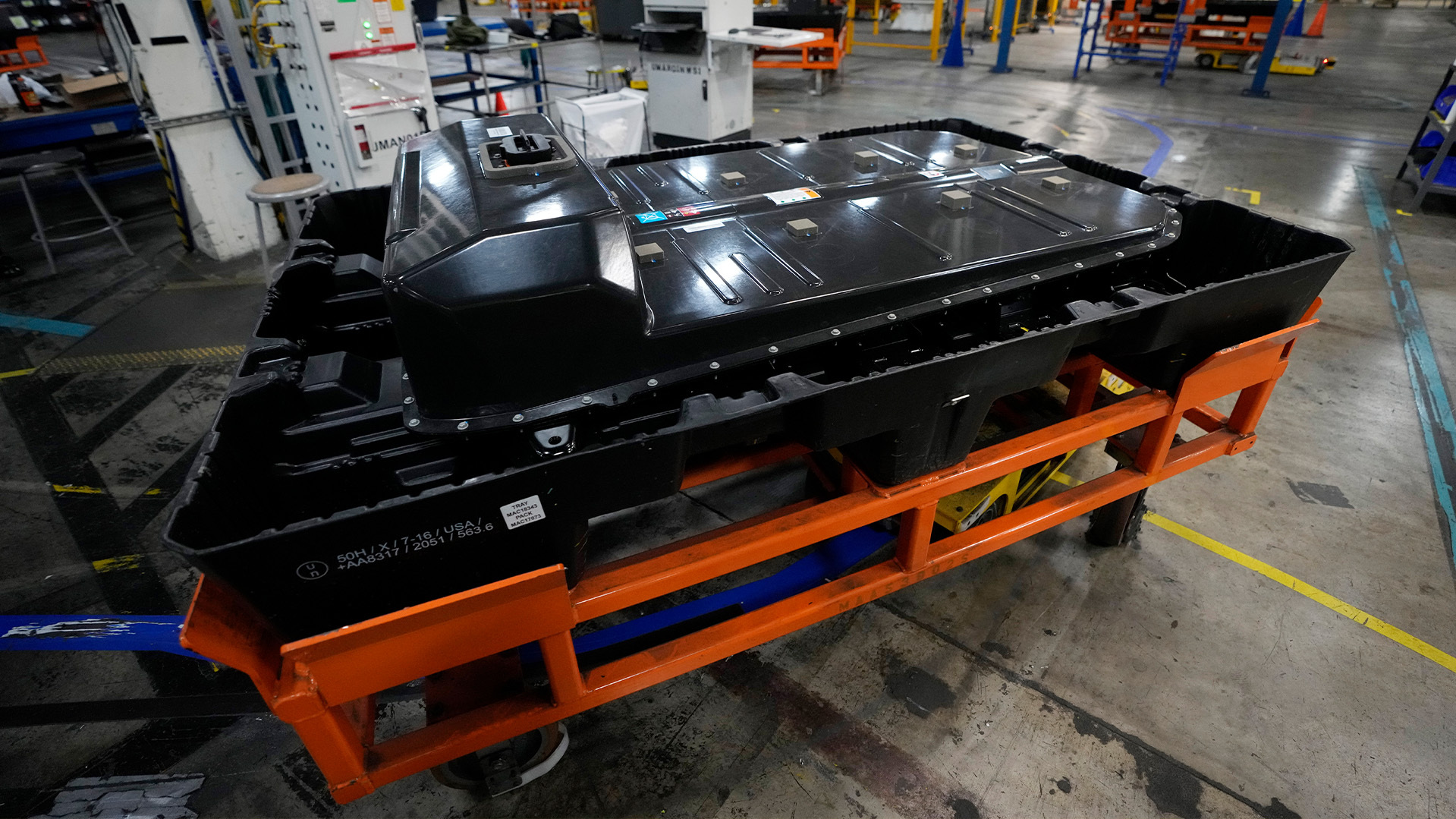
Battery manufacturers cut production as demand for EVs drops
Media Landscape
See how news outlets across the political spectrum are covering this story. Learn more“RAPIDLY REDUCED DEMAND”
THAT’S WHAT EV BATTERY MANUFACTURER PANASONIC IS CITING AS IT SCALES BACK PRODUCT ASSEMBLY
THE COMPANY IS SLASHING EV BATTERY PRODUCTION AT ITS JAPAN FACILITIES BY 60 PERCENT COMPARED TO THE FIRST QUARTER OF 2023, AND HAS CUT ITS PROFIT OUTLOOK AT ITS BATTERY UNIT BY FIFTEEN PERCENT.
A LONG-TIME SUPPLIER OF THE BATTERIES IN TESLAS, PANASONIC NOTED THAT THE AUTOMAKER’S CARS DO NOT QUALIFY FOR TAX CREDITS UNDER THE INFLATION REDUCTION ACT
PANASONIC’S CHIEF FINANCIAL OFFICER SAID QUOTE “THE INFLATION REDUCTION ACT HAS A PRICE CEILING UP TO EIGHTY THOUSAND DOLLARS, AND SINCE THE HIGH-END MODELS EXCEED THAT LEVEL, DEMAND DECREASED.”
ADDITIONALLY, THE CFO NOTED THE COMPANY’S EV BATTERY BUSINESS WOULD HAVE LOST MONEY IN THE SECOND QUARTER IF NOT FOR U.S. SUBSIDIES.
PANASONIC’S MOVE COMES AFTER LG ENERGY SOLUTION, THE WORLD’S THIRD LARGEST EV BATTERY PRODUCER, WARNED OF CONCERNS ABOUT THE EV MARKET AND ANNOUNCED A CUT IN BATTERY PRODUCTION AT THEIR POLISH FACTORY
HOWEVER, DESPITE THESE WORRIES BOTH COMPANIES ARE STILL MOVING AHEAD WITH PLANS TO BUILD BATTERY FACTORIES IN THE U.S.
LG IS PUTTING FIVE AND HALF BILLION DOLLARS TOWARD A BATTERY PLANT IN ARIZONA, THE LARGEST SINGLE INVESTMENT EVER FOR A FACILITY OF THIS KIND IN NORTH AMERICA.
MEANWHILE, PANASONIC ALREADY BROKE GROUND ON A FOUR BILLION DOLLAR FACTORY IN KANSAS
HOWEVER, THE PANASONIC PLANT’S CONSTRUCTION HAS ALREADY INCURRED CONTROVERSY.
THE ENERGY REQUIRED TO POWER THE FACILITY IS EQUIVALENT TO THE NEEDS OF A SMALL CITY- SO A COAL PLANT IN THE AREA THAT WAS SET TO TRANSITION TO USING NATURAL GAS, WILL NOW HAVE TO CONTINUE BURNING COAL, SPARKING BACKLASH FROM ENVIRONMENTALISTS.
BECAUSE THE ENERGY NEEDS ARE SO GREAT, LOCAL UTILITY PROVIDERS WILL ALSO NEED TO BUILD ADDITIONAL INFRASTRUCTURE AND MAY NEED TO RAISE POWER RATES ON NEARBY RESIDENTS.
FOR THE LATEST ON THIS, HEAD OVER TO SAN DOT COM, AND TYPE KANSAS EVS INTO THE SEARCH BAR.









